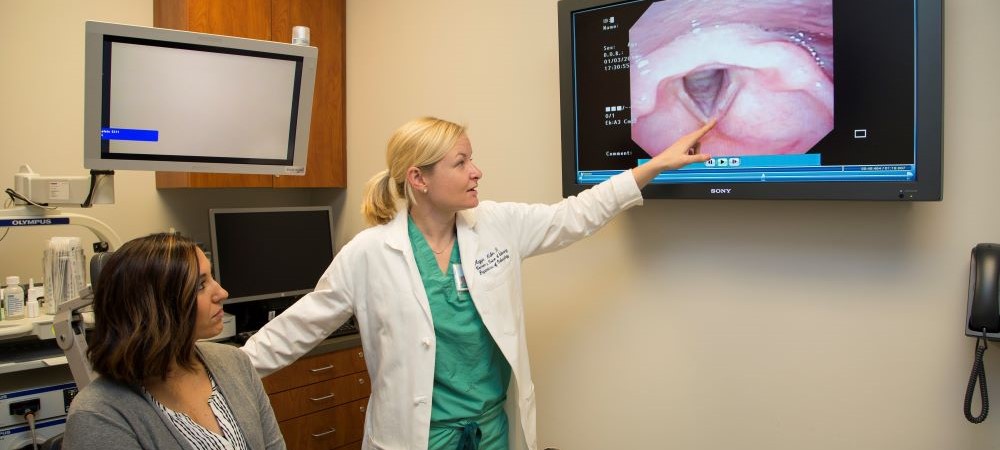Checking out the Field of Otolaryngology: What to Anticipate When You Seek Advice From an ENT
Otolaryngology, typically described as ENT, encompasses the diagnosis and treatment of throat, nose, and ear conditions. For those experiencing related concerns, speaking with an ENT professional can give clearness and alleviation. Comprehending what to anticipate throughout such consultations is important for effective interaction and care. This introduction will certainly describe vital aspects of the ENT experience, consisting of usual factors for visits and the processes associated with medical diagnosis and therapy.

Understanding Otolaryngology: A Review
Otolaryngology, usually referred to as ENT (Ear, throat, and nose) medication, is a specialized branch of medicine that concentrates on the medical diagnosis and therapy of problems impacting these important areas of the human body. This area encompasses a vast array of problems, including those relevant to hearing, balance, breathing feature, and speech. Otolaryngologists are trained to handle both clinical and medical treatments, using innovative techniques and modern technologies. Their know-how prolongs beyond traditional conditions, addressing concerns such as allergic reactions, sinus infections, and hearing loss. In addition, they play a critical function in the monitoring of head and neck cancers, providing detailed treatment customized to specific patient requirements. Generally, otolaryngology continues to be crucial for maintaining health and lifestyle in damaged individuals.
Usual Reasons to See an ENT Expert
Numerous individuals look for the competence of an ENT expert for a variety of factors, showing the diverse nature of conditions that impact the throat, nose, and ear. Typical concerns consist of chronic sinus problems, which usually leads to persistent nasal blockage and face discomfort. Allergic reactions and their linked signs, such as sneezing and itching, also motivate check outs to these professionals (ENT surgery). Hearing loss, whether abrupt or gradual, is an additional considerable reason for examination. Additionally, people may look for examination for throat conditions, including persistent hoarseness or swallowing problems. Rest apnea, identified by cut off breathing during sleep, is regularly resolved by ENT specialists. Each of these conditions highlights the value of specialized treatment in managing intricate ENT-related health problems
Preparing for Your ENT Consultation
When preparing for an ENT visit, it is vital to gather appropriate details and think about any type of details issues. People must compile an in-depth medical history, consisting of previous ear, nose, or throat issues, surgical procedures, and current drugs. Documenting symptoms-- such as period, frequency, and extent-- can offer valuable understandings for the ENT expert. Additionally, individuals need to prepare a list of inquiries they desire to ask, ensuring that all worries are addressed during the visit. Bringing along any kind of relevant clinical records or test outcomes can further aid the ENT in recognizing the person's problem. Lastly, people ought to validate their visit details, including location, day, and time, to reduce any final confusion. Appropriate prep work can enhance the effectiveness of the appointment and cause far better end results.
What to Expect Throughout the Consultation
As the consultation begins, the person can expect to take part in a comprehensive discussion with the ENT professional about their signs and symptoms and clinical history. The specialist will ask about the period, regularity, and seriousness of symptoms a knockout post such as hearing loss, nasal congestion, or aching throat. Furthermore, the client's previous medical conditions, drugs, and any type my website of appropriate family members history will certainly be reviewed, helping the expert in forming a complete understanding of the person's health. The ENT may also ask about way of life aspects, such as exposure to toxic irritants or irritants. This open discussion establishes a foundation for the consultation, ensuring that the individual's concerns are attended to and establishing the stage for any type of needed examinations or referrals for treatment.
Diagnostic Tests and Treatments in Otolaryngology
A variety of analysis tests and procedures are essential in otolaryngology to accurately examine and identify conditions affecting the throat, ear, and nose. Usual tests consist of audiometry, which determines hearing function, and tympanometry, analyzing middle ear stress. Nasal endoscopy permits visualization of the nasal flows and sinuses, while laryngoscopy analyzes the throat and singing cords. Imaging strategies, such as CT scans and MRIs, provide detailed sights of head and neck structures. Allergy screening might likewise be performed to recognize triggers for sinus or respiratory system concerns. These analysis devices make it possible for ENT experts to develop a comprehensive understanding of clients' problems, guaranteeing customized and efficient administration strategies. Proper diagnosis is necessary for successful treatment end results in otolaryngology.
Treatment Choices Supplied by ENT Specialists
ENT experts provide a selection of treatment choices tailored to resolve details conditions affecting the ear, nose, and throat. These therapies vary from conservative methods, such as medication and lifestyle modifications, to more intrusive procedures. Allergies may be managed with antihistamines or immunotherapy, while chronic sinus problems may call for nasal corticosteroids or sinus surgery. For hearing loss, ENT experts commonly advise listening device or surgical treatments like cochlear implants. In cases of throat problems, options can consist of speech therapy or operations to eliminate blockages. Additionally, they may provide advice for managing rest apnea, consisting of the use of CPAP tools or medical treatments. On the whole, the objective is to boost ent all clients' quality of life through individualized care and efficient treatment techniques.
When to Look For Follow-Up Care With an ENT
Identifying when to seek follow-up care with an ENT professional is important for managing ongoing signs or issues associated with nose, throat, and ear problems. Patients ought to think about setting up a follow-up visit if signs linger despite initial treatment, such as persistent ear discomfort, nasal blockage, or throat discomfort. Changes in hearing, equilibrium issues, or uncommon nasal discharge might likewise require additional examination. Additionally, if a patient experiences negative effects from suggested medicines or has actually undergone a surgical treatment, follow-up treatment is essential to keep track of recovery and address any type of issues. Timely assessments can ensure reliable monitoring of conditions, prevent potential complications, and offer satisfaction relating to one's health. Seeking follow-up treatment promotes proactive health administration in otolaryngology.
Regularly Asked Concerns

What Certifications Should I Look for in an ENT Professional?
When looking for an ENT specialist, one need to seek board qualification, relevant experience, and strong patient reviews. In addition, effective interaction skills and a caring strategy can considerably boost the general treatment experience.
Exactly how Do I Choose the Right ENT for My Demands?
Choosing the best ENT professional involves examining their credentials, experience, and patient testimonials (Otolaryngology). It is vital to consider their interaction design and approach to therapy, ensuring they align with the individual's particular health and wellness demands and choices
Exist Any Threats Connected With ENT Procedures?
The dangers connected with ENT treatments may include infection, blood loss, anesthetic difficulties, and prospective damages to bordering frameworks. Individuals should talk about these threats with their physician to comprehend private issues and assurance notified decisions.
How Can I Handle Stress And Anxiety Prior To My ENT Consultation?
To handle stress and anxiety before an appointment, people can exercise deep breathing workouts, picture favorable outcomes, prepare inquiries ahead of time, and look for support from friends or family members, fostering a feeling of peace of mind and peace.
What Should I Do if I Experience Adverse Effects From Therapy?
If side impacts from treatment happen, the individual must quickly report them to their healthcare company. Adjustments to therapy or extra interventions might be needed to ensure safety and efficiency in managing their condition - ENT. As the assessment starts, the individual can anticipate to involve in a detailed discussion with the ENT professional concerning their symptoms and medical background. These diagnostic devices enable ENT professionals to develop a detailed understanding of patients' problems, making sure customized and efficient monitoring plans. ENT professionals use a variety of treatment alternatives tailored to deal with details conditions impacting the nose, ear, and throat. When looking for an ENT specialist, one must look for board certification, relevant experience, and strong person evaluations. Picking the right ENT professional involves examining their certifications, experience, and person reviews
Comments on “Can an ENT Be the Best Option for Your Allergy Management?”